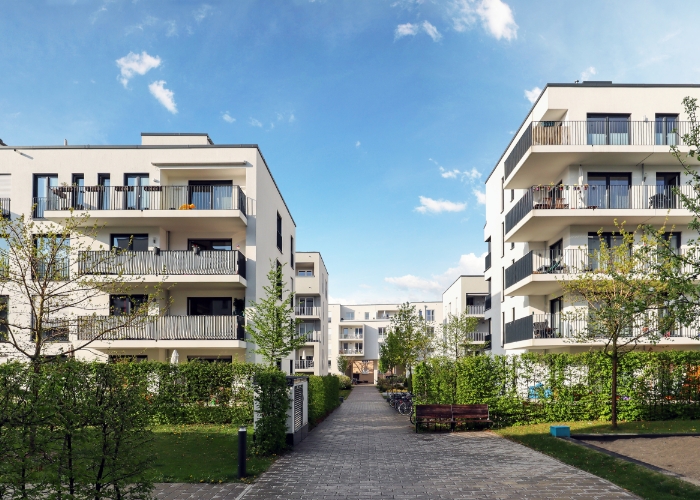Mortgage applications falling, creating more demand for rental properties.
With rates lately rising, the real estate market is slowing, most notably for residential properties. As expected, growth is slowing as loans get more expensive, but the housing market remains robust. This shift leaves many people renting and has the potential to create more demand for rental properties.
Real estate investors who are looking for a place to park their money may want to consider commercial real estate. The market for commercial real estate is not as directly impacted by higher interest rates as the single-family market and, as a result, may provide a more stable investment. Of course, this all depends on the specific property and location, so it’s important to do your research before making any decisions.
Inflation hit 9.1% in June, the highest in over 40 years.
The recent news of inflation reaching 9.1%, the highest it has been in over 40 years, is cause for both interest and concern among commercial real estate investors. Generally speaking, when inflation rises, the cost of goods and services also goes up, including everything from groceries to construction costs.
This means that the cost to build new multifamily development and other commercial properties is higher, as are the costs of services necessary to maintain and operate apartment complexes and other investment properties.
However, inflation also means that landlords can charge more for rent. In some cases, inflation can squeeze tenants. In fact, some properties are becoming increasingly unaffordable for many tenants, leading to lower profits for landlords.
For that reason, inflation can have a significant impact on the value of commercial real estate, and it’s important for investors to keep an eye on inflation rates and how they could potentially impact their portfolios. Those who are looking to invest in commercial real estate should do their homework to find properties and projects that can benefit from inflation, rather than being hurt by it.
The Fed is predicted to raise rates by up to 1% in its next meeting.
In an effort to combat rising inflation, the Fed is predicted to raise rates by as much as 1% in its next meeting. Canada’s central bank, Bank of Canada, recently raised rates by 1%, and the Fed Board of Governors is expected to follow suit. This will cause the cost of borrowing to increase and, in turn, help to slow down inflation.
With the most recent rate hike of 75 basis points in June 2022, it’s unclear when rate increases will stop. In the early 1980s, the federal funds rate reached 20% to combat double-digit inflation. This improved returns available to low-risk investments and raised the cost of financing for investors. As a result, many projects were put on hold, leading to an eventual decrease in inflation.
The current situation is very different from the early 80’s in that the federal funds rate is currently at 1.75, so there is more room for rates to increase before they start to significantly impact investment activity. Nevertheless, it is something that investors need to be aware of as it could have an effect on their portfolios.
Housing supply has continued to shrink.
Growth in the housing market has slowed, but prices have not fallen. This is due in large part to a limited supply of single-family homes. Construction ground to a halt during the coronavirus pandemic and again when the supply of construction materials dried up.
The supply of homes hasn’t yet caught up to the demand for new housing, and it’s taking longer for buyers to find a home that meets their needs. In fact, it’s estimated that the US faces a shortage of roughly 5.5 million homes. Luckily, homebuyers are still willing to pay more than the list price when they do find a home that meets their needs. This is especially true in desirable neighborhoods and school districts.
The trend of rising prices and shrinking supply is expected to continue in the coming months as the economy reels from the impacts of inflation. Investors who are thinking about buying a property should do so soon to avoid paying too much. Those who already own investment properties should keep a close eye on market conditions and be prepared to make changes to their portfolios as needed.
